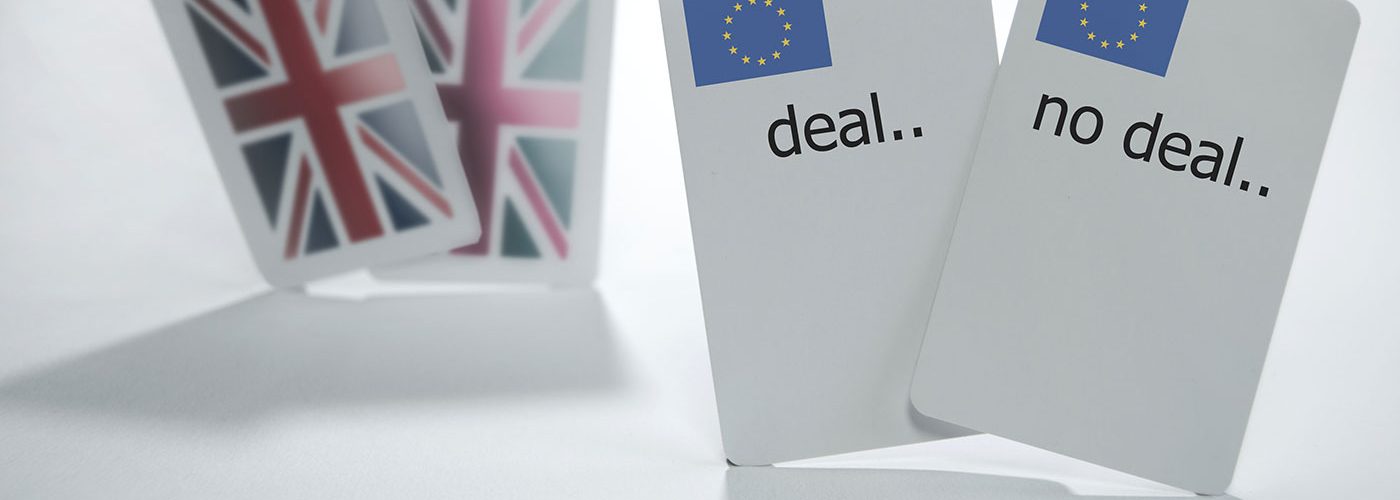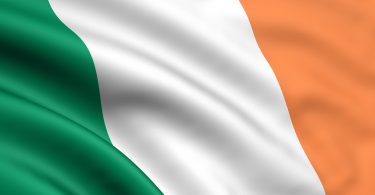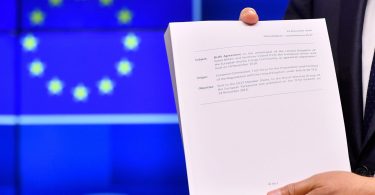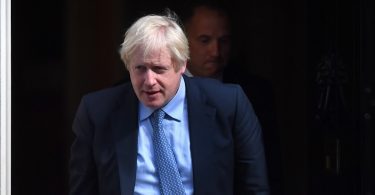by David Collins, Professor of International Economic Law, City, University of London.
What does ‘no deal’ really mean?
When trade lawyers and economists speak about leaving the EU ‘without a deal’ this normally means without a trade deal. Having no trade deal is not the same as a complete breakdown in legal relations with the EU. It is misdirection for doomsayers to point to the nightmarish eventualities of such an extreme scenario when discussing the much more likely one of trading on WTO terms. Failing to secure some sort of a UK-EU Free Trade Agreement (FTA) does not mean having no agreements on a wide range of non-trade areas where legal arrangements are essential.
These include citizen rights, security, aircraft landing permissions and other matters that are required for people to carry on their daily activities. Failure to agree on these basic matters would be a dereliction of government responsibility that could have serious repercussions on society. Thankfully, both the EU and UK negotiators have told us that agreement on many of these issues is progressing. For example, the rights of EU citizens living in the UK have recently been confirmed by the UK government. Still, the government should be investing time and energy into securing agreement on all these non-trade issues, regardless of if there is no FTA.
Trading with the EU on WTO terms: non-tariff barriers on goods?
One of the main disagreements with my position (in my article “Why a no-deal Brexit is nothing to fear” in The Spectator – [behind paywall]) concerns the applicability of non-tariff barriers on goods, meaning conformity assessment procedures for health and safety regulations. Brexit is an unusual situation where, in my view, there is no need for the EU as importing country to investigate the laws and processes of the exporting state prior to recognising its procedures as compliant. The argument which those who disagree with me put forward is that, upon Brexit, the EU will be entitled to treat goods from the UK as from any third state, meaning that exporters will have to prove they are entitled to enter the EU market, and until they do so there will be burdensome additional inspections by EU authorities at the border.
I believe that this approach transgresses the WTO’s Sanitary and Phytosanitary (SPS) and Technical Barriers to Trade (TBT) Agreements because it is arbitrary. These agreements provide that non-tariff barriers should be based on the level of scientifically determinable risk in the product, which will not change in the days after Brexit because the products themselves will not change. Nor will the regulations by which they are assessed or even the identity of those who perform the assessments in the UK. This was one of the purposes of incorporating EU regulations into the law of the UK after Brexit through the European Union (Withdrawal Act) 2018, at least in the short term. Of course, as the UK begins to depart from EU regulations in the months and years ahead it will have to accept additional inspections.
Some still insist that the fact of scientific risk within each product is irrelevant, because the EU is entitled to demand certification by EU approved authorities only, as per the terms of the Single Market. In other words, the level of risk does not matter – if the state of origin has not paid its membership fee or does not allow free movement of persons (or another pillar of the Single Market), the product is deemed to be potentially dangerous and therefore requires EU certification. To be entitled to this certification requires complicated mutual recognition negotiations, so the argument goes. In my view, this logic is rooted in the tautology of the indivisibility of the components of the Single Market; goods may only be considered safe without additional inspection if free movement of persons, capital and so on are allowed, possibly including a membership fee, all of which are factual irrelevancies in terms of health and safety risk.
Put another way, it is an attempt to justify a breach of international law by reference to the peculiarities of domestic law, specifically the sanctity of the EU’s Single Market, which itself has nothing to do with managing risk. I see this as a weak justification that is contrary to the principles of WTO law which are based on the elimination of arbitrary barriers to trade.
What if the EU were to demand conformity assessments by EU bodies?
If the EU were to adopt this strict approach anyway and insist on a separate certification procedure after Brexit as many anticipate, I maintain that the SPS and TBT agreements would require the EU rapidly to recognize (or re-recognize) UK certificates, precluding the need for protracted mutual recognition agreement negotiations. The UK would of course bear the same obligation with respect to imports from the EU. To be clear, this would not require either country to recognize the conformity assessment regulations and procedures of other WTO Members pursuant to the Most Favoured Nation obligation, as some have asserted, because goods or certification authorities from these other places would not have enjoyed pre-existing conformity. Only the authorities of a departing member of the EU would fit into this special category of entitlement.
Absent any deal (in the narrow trade sense) prior to the actual leaving date, the EU may decide to delay the certification of the UK authorities for a short time and disrupt supply chains temporarily. But it would not legally be able to do so in the medium and long term. The flip side is also true – the UK can play the delay and disrupt game just as easily. European wines, automobiles and cheese seem like appropriate targets. Of course, no one wants this. This is why agreed mutual recognition prior to the Brexit date is the sensible option for both sides, ideally through a full FTA, and why dealing with the EU on WTO terms is sub-optimal.
Would the EU flout WTO law?
Some have pointed out that the EU could refuse to recognize UK certificates, demanding onerous checking procedures at the border, irrespective of whether this is permissible under WTO law as suggested above. This is true – the EU is notionally free to do as it wishes because international law, of which the WTO is a category, has weak compliance mechanisms. It is also true, as many have noted, that the WTO Dispute Settlement system is slow (it can take years) and even a favourable ruling simply means that the losing party must bring its laws into conformity with WTO rules. In this case it would mean that the EU would need only to recognize UK certificates going forward, which wouldn’t be much help to disaffected suppliers and consumers in the months after Brexit. Ultimately the EU could choose to ignore the ruling, as it has done in the past, for example, in relation to its prohibition of hormone treated beef. It should further be acknowledged that the WTO dispute settlement system is approaching crisis because the appointment of new Appellate Body members has been blocked by the US. Reforms are clearly needed.
But it seems to me that accepting that the EU may simply flout WTO law, while conceivable, is a rather unhelpful pronouncement on the futility of trade agreements with the EU, or any country, or any international agreement for that matter. Why bother negotiating an FTA with the EU in the first place if we anticipate that it will simply break the agreed terms as it wishes? There is nothing to stop the EU from breaching its Comprehensive Economic and Trade Agreement (CETA) with Canada or its new trade agreement with Japan as well. Were these international treaties a waste of time? I would suggest not and I hope most would agree with me. Presumably the EU has signed up to these agreements because it intends to honour them, as it has generally done with the WTO Agreements and its other FTAs because it believes in the benefits of free trade and in keeping its word, even where this sometimes goes against its short-term interests. Surely governments must approach their trade commitments as if they intend to comply with them, or else the whole purpose of trade diplomacy is pointless, the rule of law means nothing, and we are risking no deal in the broadest sense of the term.
More practically, refusing to comply with WTO law is not the end of the matter, because failing to recognize UK conformity assessment rules after Brexit is arguably also a violation of the EU’s internal law. In practice in almost all areas, the EU has the power to recognise both the standards and the competent authorities of non-Member countries as complying with the standards necessary for importation of the goods concerned into the EU. Such powers of recognition tend to be delegated to the EU Commission, which can enact the necessary regulations itself without the need for legislation. These powers can and should be exercised rapidly in order to formally recognise UK standards and inspection processes. Apart from any obligations which attach to the EU at the international level via the WTO, the Commission could open itself up to judicial review under the EU’s domestic legal order from individual Member States and in some circumstances from adversely affected businesses and industries if it fails to take timely action to issue the relevant authorizations.
It is worth noting also that the United Nations rules out economic coercion aimed at discouraging national self-determination. Refusing to recognize UK product licenses after Brexit where conditions remain the same arguably constitutes this kind of behaviour and would cast a negative light on the EU in the eyes of the international community.
Why must we anticpate the worst?
The legal issues above are not settled and it is right that they should be debated. What is perplexing to me in the public discussion of a ‘no deal’ Brexit scenario is why, when faced with an uncertain outcome deriving from an unprecedented event (departure of an EU Member State), commentators choose to anticipate the worst. This is especially disconcerting where the ensuing fear has the potential to become a self-fulfilling prophesy and inflict unnecessary economic harm on the markets, the value of the pound and so on.
I suggest that there are four possible reasons for this. First, emphasizing the disaster which may unfold from ‘no deal’ could pressure the UK into better preparing for this eventuality. While such planning is unquestionably essential, I’m not convinced that fear mongering on the scale we have seen has been necessary to achieve this end.
Second, some may believe that drawing attention to apocalyptic scenarios may push the government back into the arms of the EU following a re-run of the referendum. Terrified of food shortages and civil unrest, the UK may end up agreeing to anything, regardless of economic drawbacks or fidelity to the democratic process.
Third, there may be a minority of prognosticators who stand to gain from the mayhem that will ensue in markets as a consequence of the drummed-up panic of no deal apocalypse. Those who will benefit from a run on the pound or a plummeting stock market stand out. Professional advisors helping businesses cope with Brexit chaos also come to mind.
Finally, and to me most plausibly, there is the simple explanation that people do not like change. Life outside of the EU, especially in a no deal situation, will be different for some people and adjustments will be necessary. Those who have thrived under the EU status quo may feel that their position is threatened. But with any change comes opportunity, and many will flourish just as many changes will be welcome. A more competitive economy will stimulate business and help consumers. New FTAs with third countries, starting with willing partners in the Commonwealth, will unlock growth in new markets. This is why I believe that the UK has a bright economic future outside of the EU on WTO terms alone or, preferably, based on a comprehensive FTA, provided it upholds the will of the British people.








